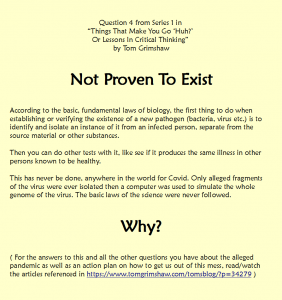
The link to the referenced article:

Tom's Blog on Life and Livingness
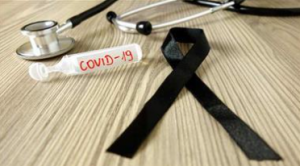
As of August 15, 2021, 68% of COVID patients admitted to hospital in the U.K. who were over the age of 50 had received one or two doses of COVID injections. By mid-August, 59% of serious cases in Israel were also among those who had received two COVID injections, mirroring U.K. data
A new study shows that vaccinated individuals are up to 13 times more likely to get infected with the new Delta variant than unvaccinated individuals who have had a natural COVID infection
Reanalysis of Pfizer’s, Moderna’s and Janssen’s COVID trial data using the proper endpoint show the shots are hurting the health of the population, and if mass vaccination continues we face “a looming vaccine-induced public health catastrophe”
The CDC also cooked the books on COVID breakthrough cases in other ways. Originally, the CDC recommended labs use a CT of 40 when testing for SARS-CoV-2 infection. This, despite using a CT above 35 was known to create a false positive rate of 97%.27 By using an exaggerated CT, healthy people were deemed stricken with COVID-19.
In May 2021, the CDC lowered the CT from 40 to 28 or lower — but only when doing PCR testing on individuals who have received the COVID jab. Unvaccinated were still tested using a CT of 40. The end result is obvious: “Vaccinated” individuals became far less likely to test positive for SARS-CoV-2 infection while unvaccinated were still exceedingly getting false positives. As noted by Off-Guardian:
“This is a policy designed to continuously inflate one number, and systematically minimize the other. What is that if not an obvious and deliberate act of deception?”
https://articles.mercola.com/sites/articles/archive/2021/08/30/fully-vaccinated-covid-deaths.aspx

CDC advise doctors of coming epidemic of paralysis resulting from Pfizer flu shot/Covid shot.
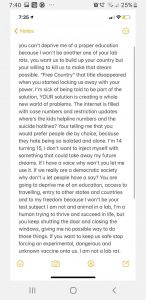
From a 14 year old subjected to cruel and unusual punishment AKA “lockdowns”.
Saw this and had to blink and rub my eyes! In the main stream media! Sheesh! What’s the world coming to? I mean, it’s not like I didn’t know it. After all, I’d recently documented every lie with links to the truth. But to see it out there so out in the open. Wow!
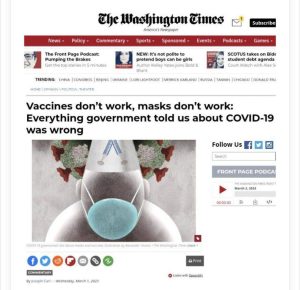
If you have been wondering about the things that don’t make sense in the government’s Covid responses, this is for you.
As promoted by many medics, the WHO, most governments, scientific and medical institutions and the media.
1. The pandemic was not planned.
2. What has been called SARS Covid-19 is a natural virus.
3. The virus evolved naturally from bats and came from the Wuhan wet market.
4. It is new, highly infectious and deadly, so a pandemic.
5. It is killing lots of people so warrants extreme measures to contain and eradicate it.
6. It is possible and desirable to eradicate it.
7. The government will do all they can to keep you healthy.
8. The government act on the best scientific/medical advice.
9. Masks prevent person to person transmission of the virus.
10. There is no harm in masking adults and children.
11. Not wearing masks endangers others.
12. Social distancing limits viral transmission and infection.
13. Not social distancing endangers others.
14. Lockdowns prevent viral transmission and infection. Stay at home, do not go out.
15. Get tested! PCR tests can determine if you are infected.
16. Asymptomatic people can still transmit the virus.
17. There are no cures available to prevent people dying from Covid-19. Ivermectin and Hydroxychloroquine do not work.
18. There is no prophylactic we can take or do to reduce our risk of infection, hospitalization or death.
19. Our only hope of doing so is with a vaccine.
20. 80% of people vaccinated will give us herd immunity.
21. An new, unproven technique can produce a safe and effective vaccine at warp speed.
22. The vaccines are now available and are safe and effective.
23. The vaccines prevent you from getting Covid.
24. The vaccines stop you from transmitting Covid to others.
25. The vaccine will reduce symptom severity if you get Covid.
26. The vaccine will prevent you from dying if you get Covid.
27. The Covid vaccine delivers better protection than natural immunity.
28. Not being vaccinated endangers others.
29. An unvaccinated person cannot be infected from a vaccinated person.
30. The lipid nanoparticles which make the spike protein stay at the injection site.
31. The Covid vaccine is safe for pregnant women. It does not cross the barrier from the mother to the baby through the placenta.
32. The Covid vaccine is safe and needed for children.
33. Covid vaccines do not contain impurities.
34. Covid vaccines do not contain graphene oxide.
35. The Covid vaccines cannot alter your DNA.
36. The blood of vaccinated people does not contain self-assembling nano-particles.
37. The unvaccinated are responsible for the mutating strains.
38. We have a pandemic of the unvaccinated.
39. We can only go back to normal if…
40. Trust The Science.
And, as the truth emerges, the next lie is,
41. “We acted in good faith. Mistakes were made.”
42. The lie would have everyone believe that the mRNA in the jabs is cleared from the body within hours after injection (just like natural mRNA in the body), that the spike protein generated only persists for a few days to a week. In that time your immune system is supposed to learn from the recognition and destruction of the spikes to “create” memory antibodies coded specifically for the SARS-CoV-2 virus so that, for the future, in the event of encountering the virus / variant, your body will leap into action and clear any virus before it can infect you.
43. On December 8th 2020, June Raine, Head of the MHRA, assured us all that “no corners have been cut” when the Government gave Temporary Authorisation to the Pfizer Covid vaccine.
44. Covid can spread on surfaces.
45. Covid harms children and they need to have the Covid Shot.
46. Doctors talking and writing about the vaccine risks and damage caused by them are wrong, the vaccines saved lives and did not cause harm.
47. The Covid shots are vaccines.
Let’s take a look at what experts (and now in some cases the government) says of each of the above points, one by one. Most of these points could have many citations evidencing their falsity. Some could have dozens or scores. Feel free to do your own research if you so desire.
1. The pandemic was not planned.
Anthony Fauci warned in 2017 Of ‘Surprise Outbreak’ during Trump administration. “There is no question that there will be a challenge to the coming administration in the arena of infectious diseases,” he said.
https://www.huffpost.com/entry/fauci-warned-of-trump-pandemic-2017_n_5e8a0548c5b6e7d76c65c8a4
Event 201 Pandemic Exercise was a conference held in October 2019. It was to get all governments and health agencies on the same page with regards to pandemic responses:
A FICTIONAL EXERCISE TO CONTROL PANDEMIC – Oct. 18, 2019 – That is Destroying the World Economy
The cosponsors were listed as the WHO, the Bill and Melinda Gates Foundation and the John Hopkins University although none of them contributed a penny. Who footed the bill? Facebook! https://subsplash.com/churchofgladtidings/lb/mi/+kn37nbr
Before the Covid Pandemic was deployed Moderna’s CEO told staff: “We need to make a billion doses of Vaccines next year, there’s going to be a Pandemic”:
On February 27, 2020—twelve days before the WHO declared COVID-19 a pandemic, and before a single American had died of the illness—Peter Daszak already knew the novel coronavirus was the “Disease X” that he and his colleagues had (in 2018) predicted would soon emerge.
On that day, his Opinion piece titled “We Knew Disease X Was Coming. It’s Here Now” was published in the New York Times. As he makes clear in the piece, Daszak already knew—down to the most precise detail—about the novel coronavirus’s transmissibility and pathogenicity to humans.
https://petermcculloughmd.substack.com/p/peter-daszaks-foreknowledge
2. What has been called SARS Covid-19 is a natural virus.
Dr David E Martin has informed us that between 1999 and 2014 there were separate patents on the Coronavirus, a man interfered with virus that has 17 patents:
https://subsplash.com/churchofgladtidings/lb/mi/+kn37nbr
University of North Carolina Chapel Hill submitted a patent application claiming they created it:
FOI requests to many government, medical and scientific bodies have so far yielded not a single isolated instance of SARS 2019-nCoV. At the time of writing it has not been isolated so has not been proven to exist. Here is the Australian response: https://www.tomgrimshaw.com/tomsblog/?p=31974
3. The virus evolved naturally from bats and came from the Wuhan wet market.
A Fairy Story: Once Upon A Time In Wuhan: https://www.bitchute.com/video/0Kw81MJbF94k/
4. It is new, highly infectious and deadly, so a pandemic.
The government and media engaged in a gigantic PR campaign to vastly inflate the number of deaths ascribed to Covid by counting anyone who died WITH Covid as dying FROM Covid. Many people reported the death of their loved ones as being misassigned to Covid. There are even reports of hospitals offering financial incentives to relatives if they would agree to their deceased relative being assigned a Covid death. In truth, the death rate is similar to a seasonal flu: https://www.tomgrimshaw.com/tomsblog/?p=34432
The Truth About COVID-19 Death Certificates | Dr. Scott Jensen
Two comments from the video clip:
My father at age 93 had a serious fall and was admitted to the Hospital. He did not have Covid yet they put that on his death certificate as the reason for his death. His wife, my step mom, fought it all the way and had that taken off his death certificate. It is and was all a sham to enrich the hospitals financially for every death in their care. Despicable.
My best friend died of pancreatic cancer. When his wife went to the hospital to claim his body, they presented her with a death certificate that said he died of complications due to Covid. When she refused to sign and accept it, they threatened to hold his body until an autopsy could be performed, which they informed her would be at least 6 months, probably much longer. So she signed it so the family could have closure. Not only did the hospitals lie, they were cruel to grieving families as they bullied them into accepting a diagnosis that was intended to enrich the hospital. Not just criminal, pure rotten evil.
5. It is killing lots of people so warrants extreme measures to contain and eradicate it.
Analysis reveals people taking Vitamin D3 daily who have blood levels of 50 ng/ml or greater have ZERO risk of dying from Covid. https://tomgrimshaw.com/tomsblog/?p=36387
Deaths were manufactured and exaggerated by the government, health authorities and the media for financial gain and PR effect.
It’s Evil to Fake Deaths to Panic People…
The World Health Organisation has told governments to code deaths to Covid even if the virus was not identified in an autopsy and even if it was not medically correct.
https://rwmalonemd.substack.com/p/its-evil-to-fake-deaths-to-panic
Here are the IFR (Infection Fatality Rate) and CFR (Case Fatality Rate) ratios for the original WH1 strain that then became of lesser virulence as the variants evolved.
Sources [1]
6. It is possible and desirable to eradicate it.
You can’t eradicate a viral respiratory disease. (eg. the common cold) so trying is absurd! https://rumble.com/vkv350-dr-dan-stock-862021.html
7. The government will do all they can to keep you healthy.
A propaganda expert says Covid is a global propaganda operation: https://rumble.com/vkppo0-covid-is-a-global-propaganda-operation.html
Numerous doctors in the US, UK and Australia report their advice to the government and health authorities on protocols that would help all went unanswered.
DEMOCIDE EPIDEMIC: The First Ever Peer-Reviewed Journal Study That Proves Excess Covid-19 Deaths in the United Kingdom Were Due to Midazolam
(The article is well worth reading its entirety, his conclusion: “This is absolutely irrefutable evidence, and it proves that the role of the government is now full on theft and democide.”)
https://www.2ndsmartestguyintheworld.com/p/democide-epidemic-the-first-ever
8. The government act on the best scientific/medical advice.
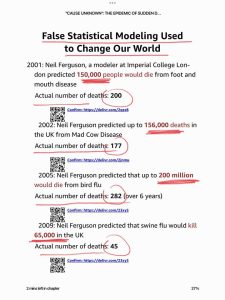
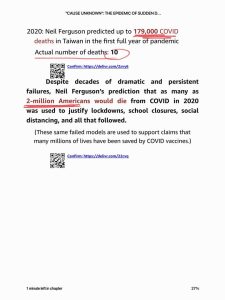
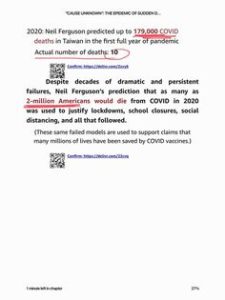
This article provides evidence that the German government (as did most others) ignored the best scientific advice on masking and lockdowns: https://www.zerohedge.com/political/secret-docs-reveal-germanys-public-health-agency-warned-lockdowns-cause-more-harm-good
A 28 July 2021 Channel 9 news report: in Australia there has not been a single case of outdoor virus transmission of Covid. Sunshine and fresh air kill viruses! A lesson from the 1918 influenza pandemic: https://www.tomgrimshaw.com/tomsblog/?p=26807
Fauci talking about how to coerce people into getting a Covid jab: “when you make it difficult for people in their lives they lost their ideological bullshit”.
https://www.facebook.com/reel/980423123747230
9. Masks prevent person to person transmission of the virus.
Not one article published before March 2020 supports the efficacy of masks. 40 scientific studies debunk it and 32 more confirm the negative health effects of masking:
https://www.tomgrimshaw.com/tomsblog/Masks_Studies.html
The latest meta-analysis from Cochrane finds:
The pooled results of RCTs did not show a clear reduction in respiratory viral infection with the use of medical/surgical masks. There were no clear differences between the use of medical/surgical masks compared with N95/P2 respirators in healthcare workers when used in routine care to reduce respiratory viral infection. Hand hygiene is likely to modestly reduce the burden of respiratory illness, and although this effect was also present when ILI and laboratory‐confirmed influenza were analysed separately, it was not found to be a significant difference for the latter two outcomes. Harms associated with physical interventions were under‐investigated.
https://rwmalonemd.substack.com/p/the-2023-cochran-review-on-physical
10. There is no harm in masking adults and children.
The harms from wearing masks are real
https://nexusnewsfeed.com/article/health-healing/the-harms-from-wearing-masks-are-real/
Face Masks May Raise Risk of Stillbirths, Testicular Dysfunction and Cognitive Decline Due to Build-Up of Carbon Dioxide, Study Warns.
A new German study published in the Journal Heliyon concluded that, because masks create a pocket of dead space between the mouth and mask, the void traps carbon dioxide at levels that are mildly toxic when worn over long periods. According to the researchers, repeated exposure to those levels of CO₂ increase the risks of a long list of serious problems including stillbirths, low sperm production, cognitive impairment, and permanent mental declines, especially in children.
The study explained that by comparison, fresh air has around 0.04% CO₂, while wearing masks for more than 5 minutes causes chronic exposure to carbon dioxide levels between 1.41% to 3.2% in mask-filtered air.
Masks create little individual, personal climate-change spaces.
Another way to look at these results is, for men, long term masking is equivalent to punching themselves right in the family jewels, over and over and over.
The researchers identified the shocking health risks by rounding up a large number of other studies. For example, one study cited by the German researchers found that just 0.3% of prolonged CO₂ exposure in pregnant rats and young mice caused permanent brain damage, heightened anxiety levels and memory problems. Another study found male mice exposed to 2.5% of CO₂ for four hours — equal to 0.5% in humans — led to destruction of testicle cells and sperm. A third study found that 3% of CO₂ (equal to 0.8% in humans) in pregnant rats led to stillbirth and birth defects.
A fourth study found that pregnant guinea pigs’s exposure to just 0.48% of CO₂ for only 10 minutes a day for 20 consecutive days caused stillbirths and birth defects in 68% of the pups.
https://www.coffeeandcovid.com/p/revived-monday-april-24-2023-c-and
Masks cause documented harm to health and development of children:
https://www.tomgrimshaw.com/tomsblog/Masks_Studies.html
The Physiological Burden of Prolonged PPE Use on Healthcare Workers during Long Shifts
CDC acknowledges significant harms of N95s due to CO2 buildup.
To avoid these, CDC recommends not wearing N95 for more than 1 hour.
In other words, all-day use advocated by Covidians causes harm, without demonstrated benefit.
The Physiological Burden of Prolonged PPE Use on Healthcare Workers during Long Shifts
Mask study published by NIH suggests N95 Covid masks may expose wearers to dangerous level of toxic compounds linked to seizures and cancer
The surgical N95 mask has been held up as the gold standard when it comes to protecting against Covid.
But a study quietly re-shared by the National Institutes of Health in spring suggests the tight-fitting mask may expose users to dangerous levels of toxic chemicals.
Researchers from Jeonbuk National University in South Korea looked at two types of disposable medical-grade masks, as well as several reusable cotton masks.
The study found that the chemicals released by these masks had eight times the recommended safety limit of toxic volatile organic compounds (TVOCs).
Inhaling TVOCs has been linked to health issues like headaches and nausea, while prolonged and repeated has been linked to organ damage and even cancer.
11. Not wearing masks endangers others.
…the medical literature for the past forty-five years has been consistent: masks are useless in preventing the spread of disease and, if anything, are unsanitary objects that themselves spread bacteria and viruses.
Mandating masks has not kept death rates down anywhere. The 20 U.S. states that have never ordered people to wear face masks indoors and out have dramatically lower COVID-19 death rates than the 30 states that have mandated masks. Most of the no-mask states have COVID-19 death rates below 20 per 100,000 population, and none have a death rate higher than 55. All 13 states that have death rates higher 55 are states that have required the wearing of masks in all public places. It has not protected them.
Another study confirms wearing masks increases COVID infection:
https://www.tomgrimshaw.com/tomsblog/Masks_Studies.html
12. Social distancing limits viral transmission and infection.
13. Not social distancing endangers others.
14. Lockdowns prevent viral transmission and infection. Stay at home, do not go out.
12. 13. and 14. Dr Scott Atlas and the Efficacy of Lockdowns, Social Distancing, and Closings Government Negligence (Or Malfeasance) On Grand Scale – Canadian expert’s research finds lockdown harms are 10 times greater than benefits: https://www.hoover.org/research/doctor-scott-atlas-and-efficacy-lockdowns-social-distancing-and-closings
14.
More destructive than beneficial. Fresh air and sunshine are deadly to viruses as was found during the 1918 Spanish flu. Sunshine and fresh air kill viruses! A lesson from the 1918 influenza pandemic:
A sunshine and fresh air lesson from the 1918 influenza pandemic!
Lockdowns do not stop transmission and harms are 10 times the benefits:
https://torontosun.com/opinion/columnists/canadian-experts-research-finds-lockdown-harms-are-10-times-greater-than-benefits
A new study published in The Lancet, a medical journal, has revealed that Covid-19 mandates such as lockdowns, mask mandates, and business closures, had no effect on the total number of deaths experienced as a result of the pandemic. With schools being shut down during the pandemic and the rise of remote learning, many states have seen a marked decrease in students reading and mathematics levels. The National Assessment of Educational Progress, issued in October of 2022, found that just 26 percent of eighth graders were proficient in math, down from 34 percent in 2019. 36 percent of fourth graders were proficient in math, down from 41 percent in 2019. Reading proficiency scores for fourth graders is at 33 percent, with eighth graders scoring 31 percent.
https://freerepublic.com/focus/f-news/4156222/posts
15. Get tested! PCR tests can determine if you are infected.
The Entire Basis For The Lockdowns Is A Lie! Kary Mullis, inventor of the PCR test, said “…these PCR tests cannot detect free infectious viruses at all.” That’s why a paw paw and goat can test positive. https://www.rt.com/op-ed/507937-covid-pcr-test-fail/
21 July 2021 the CDC admitted Covid cannot distinguish between Covid and the normal flu. https://www.fda.gov/media/134922/download
16. Asymptomatic people can still transmit the virus.
Yet another study has found no COVID-19 transmission from asymptomatic carriers:
https://www.nature.com/articles/s41467-020-19802-w
17. There are no cures available to prevent people dying from Covid-19. Ivermectin and Hydroxychloroquine do not work.
An expose from an ICU nurse of the important medical facts, that there are medical cures for Covid that are safe and effective and being suppressed: https://www.instagram.com/p/CSaR9AYp5li/
Ivermectin works. It was suppressed as the vaccine emergency use authorisation depended on their being no effective treatments available.
Ivermectin yields 100% positive results in Coronavirus prevention and treatment.
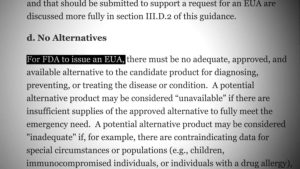
Here’s the science.
Ivermectin Study Summary
https://c19ivm.org/
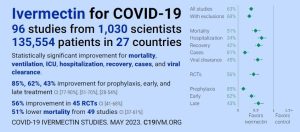
Fareed and Tyson treated over 20,000 COVID cases without a single death. Overcoming the COVID Darkness is about two doctors who used a treatment protocol early in the pandemic and early in treatment when the conventional wisdom issued was not to provide any treatment to patients and send them home until they got sick and then go to the hospital where they were then often put on breathing machines – many of whom died. To the contrary, every one of the patients Dr. Tyson and Dr. Fareed treated early in the illness recovered and there were NO deaths. They also treated those who were severely sick and only lost a few.
The treatment protocol they used included pharmaceutical and nutraceutical ingredients and has proven to be highly effective and safe with COVID, especially when caught early. This book is their story complete with testimonials from patients and other doctors, research studies, news clippings, and most of all, the reasons why this successful treatment was held back from the public. Overcoming the COVID Darkness is a must read for anyone concerned about their health and successfully negotiating the pandemic.
https://www.amazon.com/Overcoming-COVID-Darkness-Successfully-Patients-ebook/dp/B09RPSXMQD/
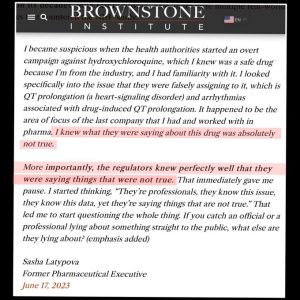
18. There is no prophylactic we can take or do to reduce our risk of infection, hospitalization or death.
The WHO and governments world wide have suppressed the use of Ivermectin and Hydroxychloroquine and not advised to increase Vit D3 supplements, all shown to reduce Covid severity and death rates.
https://www.theepochtimes.com/dr-harvey-risch-hydroxychloroquine-ivermectin-and-other-therapeutics-highly-effective-in-early-covid-treatment_4131804.html
19. Our only hope of doing so is with a vaccine.
According to manufacturer’s data the shot does not prevent infection, does not prevent transmission, does not lessen the symptoms of the infection and can shed spike proteins infecting others.
Adequate Vitamin D levels reduce death rate to zero:
20. 80% of people vaccinated will give us herd immunity.
Herd immunity never been proven from vaccines: https://www.tomgrimshaw.com/tomsblog/?p=19636
Herd immunity is only proven to occur from exposure to the pathogen, not to a vaccine. The Covid vaccines are “leaky” and do not confer herd immunity:
21. An new, unproven technique can produce a safe and effective vaccine at warp speed.
Every previous attempt at producing an mRNA vaccine failed early trials. The animals died.
https://humansarefree.com/2021/01/dr-lee-merritt-animal-studies-mrna-technology-all-animals-died.html
22. The vaccines are now available and are safe and effective.
Worldwide the vaccines have killed tens of thousands and injured hundreds of thousands.
Right from the get-go the “safe and effective” mantra was a complete fabrication as Pfizer’s contract specifically states the long-term effects were unknown and there may be adverse effects of the Vaccine that are not currently known.
PFIZER VACCINE CONTRACT REVEALED – Our Government has been lying to us.
A South African court has ordered that the Pfizer vaccine contract between the SA Government & Pfizer be made public.
It is reasonable to assumed that the terms and conditions in this contract would be very similar for every nation.
Clause 5.5 provides,
So while poltiticans around the world were assuring the public that the vaccines were “safe & effective” – they’d signed a contract acknowledging that the long-term effects & efficacy of the Vaccine were not known and that there may be adverse effects of the Vaccine that were not known.
Our government and politicians lied to the public. No wonder they are so desperate to keep these contracts hidden.
And here it is: https://healthjusticeinitiative.org.za/wp-content/uploads/2023/09/OCRPfizer-1_Redacted.pdf
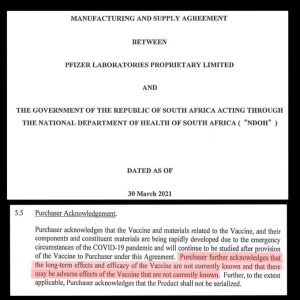
Adverse events and deaths are being ignored and covered up:
https://rumble.com/v2bk5mw-dr-melissa-mccann-speech-covid-vaccines-and-effects-tour-sydney-australia-2.html
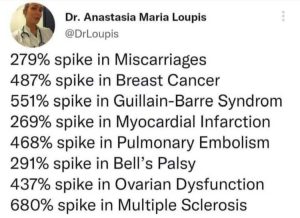
Excess mortality among vaccinated exploding:
https://www.thecentersquare.com/indiana/indiana-life-insurance-ceo-says-deaths-are-up-40-among-people-ages-18-64/article_71473b12-6b1e-11ec-8641-5b2c06725e2c.html
Disabilities among vaccinated skyrocketing:
https://healthimpactnews.com/2023/the-data-missing-from-wall-street-economists-skyrocketing-disabilities-and-injuries-in-u-s-workforce-after-covid-19-vaccines/
Data from the Australian drug regulatory agency, TGA, reveals on an annual basis, the CV-19 shots have caused a 2800% increase in deaths compared to all other shots combined over the last 50 years of vaccines.
https://www.tomgrimshaw.com/tomsblog/?p=34279
Five Million Harmed
Pretty staggering number of people. And that’s just the ones entered into the database. American experience shows that less than one per cent of adverse reactions to vaccines are entered into their equivalent database.
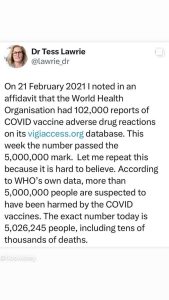
Dr Rochelle Walensky – Mass Murderer
On Friday May 5 2023, Dr. Rochelle Walensky, the Director of the Centers for Disease Control and Prevention (CDC), announced her resignation — effective June 30. Dr. Walensky’s departure, we are told by the mainstream media, comes “at a good time” because of the WHO’s decision to end the COVID emergency. But what is not being reported is that Dr. Walensky’s resignation announcement also came just five days after a damning report revealed what she knew before she urged all women of childbearing age to get injected, that 54% of maternal exposure during pregnancy resulted in an adverse event.
Crime Scene: ‘Mass Murderer’ Walensky’s Resignation Came Days After Incriminating Report Emerged
Covid Jab Causes MS
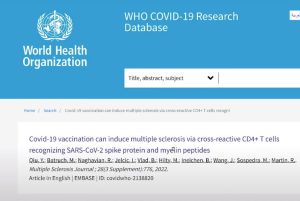
https://www.facebook.com/photo/?fbid=10160564354249920&set=a.426911879919
The Phizer Jab Is Causing Vaccine Acquired Immune Deficiency Symptom
https://odysee.com/@TLAVagabond:5/TDWU-8-29-23:f
The More Covid Jabs The More Infections And Deaths
https://www.youtube.com/watch?v=CRs9xwiGabA
An analysis of the UK ONS (Office of National Statistics) data reveals that COVID Vaccinated Children are 4,423% more likely to die of any cause & 13,633% more likely to die of COVID-19 than Unvaccinated Children.
https://expose-news.com/2022/07/27/uk-gov-vaccinated-children-increased-mortality/
Excess Cardiopulmonary Arrest and Mortality after COVID-19 Vaccination in King County, Washington
Our analysis revealed a 25.7% increase in total cardiopulmonary arrests and a 25.4% increase in cardiopulmonary arrest mortality from 2020 to 2023 in King County, WA. Excess cardiopulmonary arrest deaths were estimated to have increased by 1,236% from 2020 to 2023, rising from 11 excess deaths (95% CI: -12, 34) in 2020 to 147 excess deaths (95% CI: 123, 170) in 2023.
https://substack.com/app-link/post?publication_id=1119676&post_id=145024621
23. The vaccines prevent you from getting Covid.
Authorities from Joe Biden down promised that those who got the vaccine would not get infected. This was untrue.
FDA admits vaccines do no prevent infection: https://www.theepochtimes.com/fda-vaccines-dont-have-to-prevent-infection-or-transmission_5217321.html
At best an absolute risk reduction of 1.3%: https://www.tomgrimshaw.com/tomsblog/?p=33166
Covid shots do not prevent infection:
https://www.fda.gov/media/144245
In fact, US data shows they make you twice as likely to get infected:
The FDA knew on September 17, 2021 that people who got the COVID vaccine were 2X more likely to be infected. That’s the opposite of what they told us. https://stevekirsch.substack.com/p/proof-the-fda-knew-on-september-17
And UK data confirms it:
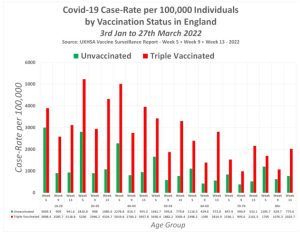
The CDC has acknowledged a significant finding that independent researchers have been suggesting since the introduction of mRNA vaccines: those who are vaccinated may be more susceptible to contracting new variants of the virus compared to unvaccinated individuals.
This notable admission was included in a recent update to the CDC’s guidance on emerging Covid-19 variants. This development emerges as the Biden administration reportedly considers reinstating comprehensive Covid restrictions, including lockdowns, mask mandates, and stringent vaccination requirements, particularly with the 2024 election approaching.
The CDC’s statement indicates that individuals who have received one or more doses of the mRNA vaccines could have a higher likelihood of contracting new variants of the virus than those who are unvaccinated.
A new preprint study that examined 47,561 Cleveland Clinic employees found “a higher number of prior COVID-19 vaccine doses was associated with a higher risk of COVID-19.”
More evidence that vaccinations suppress the immune system.
https://www.medrxiv.org/content/10.1101/2024.04.27.24306378v1
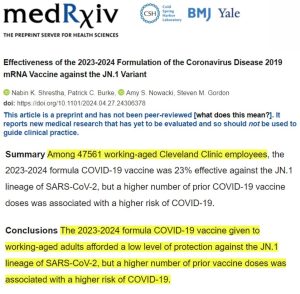
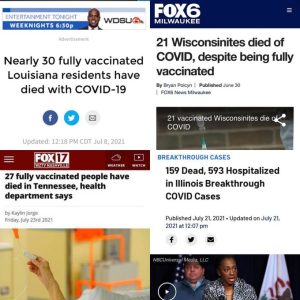
24. The vaccines stop you from transmitting Covid to others.
Covid shots do not prevent transmission:
https://www.fda.gov/media/144245
FDA admits vaccines do not prevent transmission: https://www.theepochtimes.com/fda-vaccines-dont-have-to-prevent-infection-or-transmission_5217321.html
25. The vaccine will reduce symptom severity if you get Covid.
Not according to the manufacturer’s data:
https://www.tomgrimshaw.com/tomsblog/?p=33468
26. The vaccine will prevent you from dying if you get Covid.
A new pre-print study from Norway looking at differences in outcomes between vaccinated and unvaccinated hospital patients has found that being vaccinated makes zero difference to the risk of dying once hospitalised for COVID-19:
https://dailysceptic.org/2021/11/14/norway-study-finds-zero-vaccine-effectiveness-against-death-for-covid-hospital-patients/
An Austrian study found 6 months after the jab the death rate for the vaccinated was higher than for the unvaccinated.
The More Covid Jabs The More Infections And Deaths
https://www.youtube.com/watch?v=CRs9xwiGabA
27. The Covid vaccine delivers better protection than natural immunity.
Natural immunity from infection lasts longer than from the vaccine. Study finds Natural Immunity to Covid-19 does not wane by even 1% but the Vaccinated are developing Acquired Immunodeficiency Syndrome:
https://www.tomgrimshaw.com/tomsblog/?p=41187
28. Not being vaccinated endangers others.
The CDC state “Genetic analysis of the outbreak showed that people who were vaccinated were transmitting the virus to other vaccinated people.” https://context-cdn.washingtonpost.com/notes/prod/default/documents/8a726408-07bd-46bd-a945-3af0ae2f3c37/note/57c98604-3b54-44f0-8b44-b148d8f75165.#page=1
29. An unvaccinated person cannot be infected from a vaccinated person.
Phizer admits vaxxed can shed: https://www.tomgrimshaw.com/tomsblog/?p=32814
The jabbed are now bioweapon transmitters, passing on toxins that adversely affect the blood of the unjabbed. Blood of 85% of the unjabbed are observed to contain self assembling nonoparticles from the “vaccine” vials:
https://www.facebook.com/watch/?v=764373445018617
The lipid nanoparticles which make the spike protein stay at the injection site.
Here’s how Dr. Byram Bridle (who is a viral immunologist and associate professor at University of Guelph, Ontario) summed it up. “We made a big mistake. We didn’t realize it until now… We thought the spike protein was a great target antigen, we never knew the spike protein itself was a toxin and was a pathogenic protein. So, by vaccinating people we are inadvertently inoculating them with a toxin.” “‘We have known for a long time that the spike protein is pathogenic…. It is a toxin. It can cause damage in our body if it’s in circulation. Now, we have clear-cut evidence that the vaccine itself, plus the protein, gets into blood circulation.'”
Documents obtained by scientists through the Freedom of Information Act (FOIA) revealed pre-clinical studies showing the active part of the vaccine (mRNA-lipid nanoparticles) — which produce the spike protein — did not stay at the injection site and surrounding lymphoid tissue as scientists originally theorized, but spread widely throughout the body and accumulated in various organs, including the ovaries and spleen.”
“Research suggests this could lead to the production of spike protein in unintended places, including the brain, ovaries and spleen, which may cause the immune system to attack organs and tissues resulting in damage, and raises serious questions about genotoxicity and reproductive toxicity risks associated with the vaccine.” Studies also indicate that the protein is able to gain access to cells in the testicles, and may disrupt male reproduction.
The Spike Protein of SARS-CoV-2 is “Delivered” to All Organs via the Endothelium and Induces Systemic Nonsense mRNA Translations Resulting in Hyperaccelerated Aging:
https://www.tomgrimshaw.com/tomsblog/?p=44279
Covid Vaccine In Breast Milk
“Of 13 lactating women receiving the vaccine (20 exposures), trace mRNA amounts were detected in 10 exposures up to 45 h post-vaccination. Our findings suggest that the COVID-19 vaccine mRNA administered to lactating mothers can spread systemically to the [breast milk] in the first two days after maternal vaccination. Initially, it was thought that the vaccine mRNA encapsulated in LNPs would remain localized at the injection site and quickly degrade. However, several reports suggest that the LNPs/mRNA can enter the bloodstream and accumulate in distant tissues.”
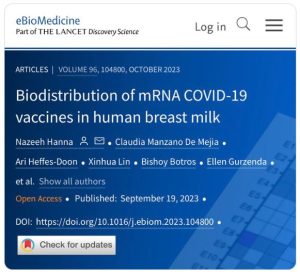
31. The Covid vaccine is safe for pregnant women. It does not cross the barrier from the mother to the baby through the placenta.
The study demonstrated that the vaccine will travel throughout the body after injection, and is found not only at the injection site, but in all organs tested, with high concentration in the ovaries, liver, adrenal glands, and spleen:
https://brownstone.org/articles/the-false-messaging-on-vaccines-given-to-pregnant-women/
A Scandinavian report showing a dramatic decline in pregnancies starting with the rollout of the HPV vaccine in 2010 and dropping further after the Covid jab rollout in 2021:
https://tkp.at/wp-content/uploads/2023/03/3.PSUR-1.pdf
The spike protein also has reproductive toxicity, and Pfizer’s biodistribution data show it accumulates in women’s ovaries. Data suggests the miscarriage rate among women who get the COVID “vaccine” within the first 20 weeks of pregnancy is 82%. Confirming this statistic there was a shocking new study published in the New England Journal of Medicine reveals that when pregnant women are given covid vaccinations during their first or second trimesters, they suffer an 82% spontaneous abortion rate, killing 4 out of 5 unborn babies.
32. The Covid vaccine is safe and needed for children.
Children’s extremely low risk of Covid confirmed by study:
https://www.bbc.com/news/health-57766717
Deaths among UK Children are 44% higher than the 5-year-average since they were offered the Covid-19 Vaccine according to ONS data:
https://www.tomgrimshaw.com/tomsblog/?p=36127
33. Covid vaccines do not contain impurities.
Watch this live video of a vaccine under the microscope: https://www.bitchute.com/video/tMQofcKhmKBb/
The covid injectables contain much more than they should – orders of magnitudes more than the EMA stipulates of DNA:
https://jessicar.substack.com/p/follow-up-on-dna-contamination-of
34. Covid vaccines do not contain graphene oxide.
The FDA confirms the Covid vaccines DO contain graphene oxide.
https://expose-news.com/2023/04/02/fda-confirms-graphene-is-in-the-covid-vaccines/
35. The Covid vaccines cannot alter your DNA.
Study finds Covid vaccines rewrite your DNA, permanently:
https://www.science.org/content/article/further-evidence-offered-claim-genes-pandemic-coronavirus-can-integrate-human-dna
36. The blood of vaccinated people does not contain self-assembling nano-particles.
4G and 5G EMF radiation from a smart phone, applied to contaminated blood, shows rapidly increased rate of self-assembly AND disassembly of structures in the blood:
https://www.facebook.com/watch/?v=764373445018617
37. The unvaccinated are responsible for the mutating strains.
Pandemic Of The Unvaccinated is A BLATANT LIE! Variations Come From Mutations IN THE VACCINATED!
https://video.foxnews.com/v/video-embed.html?video_id=6266738894001
38. We have a pandemic of the unvaccinated.
Maybe so, maybe not. In Israel 40% and in the UK 80% of the Covid hospitalisations are vaxxed.
Pandemic Of The Unvaccinated is A BLATANT LIE! Variations Come From Mutations IN THE VACCINATED!
https://video.foxnews.com/v/video-embed.html?video_id=6266738894001
39. We can only go back to normal if…
The truth from two of the criminally insane architects of this madness: https://www.tomgrimshaw.com/WHO_Director_General_and_Klaus_Schwab.mp4
40. Trust The Science.
As you can readily see from the above, the authorites did not promote solutions based on science. EVERY SINGLE RECOMMENDATION was unscientific AND they suppressed what was scientifically valid!
Question: If the official story is true, why the suppression of so many doctors, scientists and researchers with differing view? Why is there so much censorship of informed medical opinion? Not just informed medical opinion but front line doctors who are getting results, some with ZERO deaths amongst their COVID cases while using government banned drugs.
Answer: TRUTH does not mind being questioned. A LIE does not like being challenged.
In a brilliant lecture Dr Lee Merritt said of Fauci, Brix, etc. “Everything they said was wrong. Now, they were wrong about what they were telling us and they were wrong by errors of omission, not telling us things that we knew to be helpful. And I’m talking about knowing in science for 20 years. So I can give you the benefit of doubt if you’re wrong about one or two things, but when you’re wrong 100% of the time consistently, that’s not by accident. I mean even a blind hog gets to eat corn once in a while.” https://www.tomgrimshaw.com/tomsblog/?p=33980
41. And, as the truth emerges, the next lie is,
“We acted in good faith. Mistakes were made.”
This Was NOT A Mistake – Mistakes Were NOT made!
Narrated by one of the heroes of the pandemic who did her best to counter the lies and misinformation from the government.
https://www.tomgrimshaw.com/tomsblog/?p=44034
The fact that the authorities got it 100% wrong coupled with their suppression of known prophylactics and effective treatments and the suppression of those medical professionals telling the truth and standing up for the rights of their patients indicate that this was no accident, it was a planned event, from beginning to end.
Why? The pandemic, lockdowns etc. are to force you to get the vaccine. The vaccine is to force you to get the vaccine passport. The passport is to force you to get the social credit score. The social credit score is to force you to obey the government who can then deny you food, medicine, housing, travel etc. by restricting access to their central bank digital currency (CBDC).
For more data from another hero: “They’re planning on significant population reduction to balance the books.” Catherine Austin Fitts: https://www.facebook.com/watch/?v=425749928703561
42. The lie would have everyone believe that the mRNA in the jabs is cleared from the body within hours after injection (just like natural mRNA in the body), that the spike protein generated only persists for a few days to a week. In that time your immune system is supposed to learn from the recognition and destruction of the spikes to “create” memory antibodies coded specifically for the SARS-CoV-2 virus so that, for the future, in the event of encountering the virus / variant, your body will leap into action and clear any virus before it can infect you.
Now, the truth as we understand it. The lack of appropriate studies measuring the time of persistence of mRNA in the jabs by the pharmaceutical companies is woefully pitiful in the area of your question. Anyone who says otherwise is spreading false information. So we have to look to independent studies to piece it together.
https://choicenotcoercion.quora.com/Why-will-you-decline-COVID-19-vaccination-3
A disturbing new study has revealed that Covid mRNA shots permanently alter the DNA of those who receive the injections.
Alarmingly, however, these dangerous changes to the DNA will be passed on to the offspring of the Covid-vaccinated.
This week, renowned cardiologist Dr. Peter McCullough posted a video to X, in which he highlights the study.
McCullough reveals that the explosive study has been massively censored across Big Tech social media platforms.
He focuses on LinkedIn’s censorship of the study, which was blocked from public view despite being published by the U.S. National Institutes of Health’s (NIH) National Library of Medicine.
The study documents how mRNA gene therapy vaccines such as the Covid shots permanently alter the genetics of the vaccinated.
Additionally, the study found that the progeny of the vaxxed are also affected via the insertion of mRNA into the human DNA.
“The Pfizer and Moderna genetic code is permanently installed into the human genome,” McCullough said.
“So as we sit here today we have to reconcile that Pfizer and Moderna potentially could have permanently changed the human genome.”
McCullough also discussed the concern that the Pfizer and Moderna genetic code has embedded itself within sex cells.
This issue is causing permanent mutations for all offspring of the Covid mRNA-vaccinated lineage.
“What if eggs and sperm took up the Pfizer and Moderna Covid [vaccines] and it’s permanently installed, then they would pass it on to the baby,” he said.
“That’s the great concern.”
The found that a certain part of the Covid mRNA genetic code (BNT162b2) from the injections did indeed insert itself into human liver cells.
Peter McCullough 26 May 2024
https://www.ncbi.nlm.nih.gov/pmc/articles/PMC8946961/
43. On December 8th 2020, June Raine, Head of the MHRA, assured us all that “no corners have been cut” when the Government gave Temporary Authorisation to the Pfizer Covid vaccine.
MHRA Finally Admits it Failed to Test the Safety of Mass Manufactured Covid Vaccine Batches
44. Covid can spread on surfaces.
The virus has not been proven to survive on surfaces.
45. Covid harms children and they need to have the Covid Shot.
Covid Does Not Harm Most Children
The report confirmed what anyone with common sense has known for years: “Covid-19 is statistically almost harmless to children.” The grand jury noted that the same goes for “most adults,” and further highlighted how individuals 65 and older are the demographic most at risk of dying from the virus.
46. Doctors talking and writing about the vaccine risks and damage caused by them are wrong, the vaccines saved lives and did not cause harm.
The Singapore Ministry Of Health continue to gaslight their population and discredit 9 experts who are speaking out about the vaccine caused harms.
https://open.substack.com/pub/pharmafiles/p/wow-singapores-ministry-of-health
47. The Covid shots are vaccines.
Law Professor Who Wrote 1989 Biological Weapons/Antiterrorism Act Provides Affidavit That COVID 19 Shots Are Weapons of Mass Destruction
~~~~~~~~~~~~~~~~~~~~~~~~~~~~~~~~~~~~~~~~~~~~~~~~~~~~~~~~~~~~
And, to close, a few bonus lies courtesy of Five Times August:
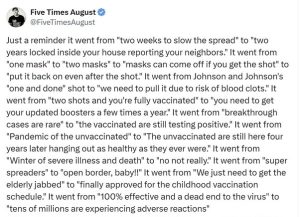
Yours sincerely in an attempt to save as many lives as possible,
Tom Grimshaw
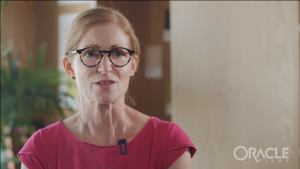
Ivermectin prevents Covid infection by 80% and mortality by 60%. It is cheap and saves lives. But there is no money in it.
https://www.oraclefilms.com/tesslawrie
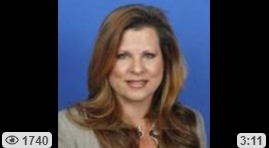
Citing potential blood clot, fertility, and immune issues related to them.